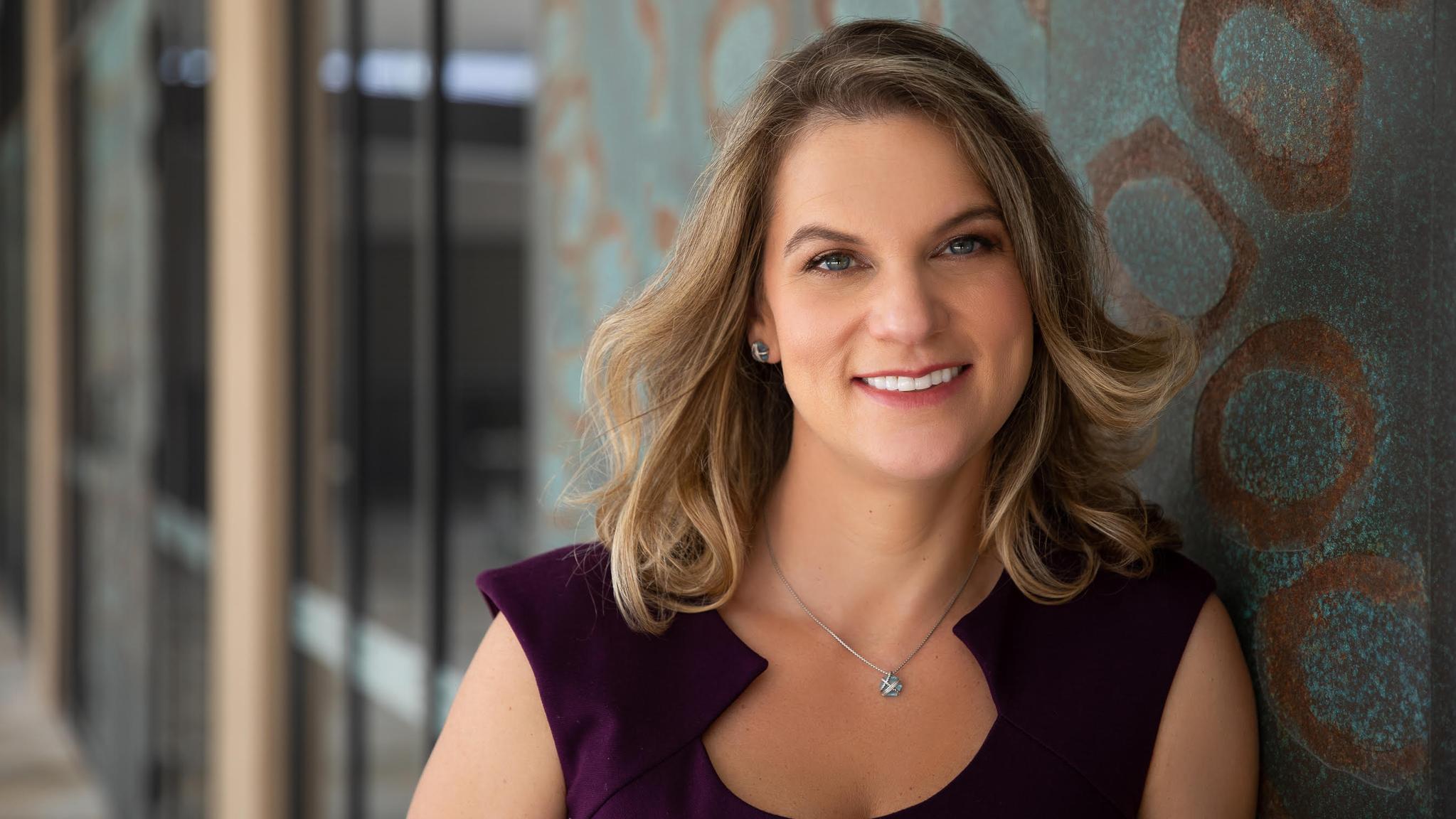-
These three women are proof it’s becoming more possible in top wealth firms but not without a lot of sexism along the way.
Molly Bennard was sexually harassed at work for the first time when she was 21 years old.
It was her first job out of college in America, working for one of the big four accounting firms.
After reporting the incident, she was told that it was just “another issue” involving that male boss, so it wasn’t taken seriously.
“It was something I never experienced before. I had to accept this odd reality in society that it was OK that someone could do that,” she now says.
“It resulted in me seeking a different path for my career. I wanted to get out of the audit practice, so my choices were either to quit or move to a different division.
“That wasn’t a bad thing, because I explored other options. But that is not the way it is supposed to happen.”
Bennard spent the next two decades in the financial services sector, gaining expertise in growth strategy, practice management and operations in independent wealth management which culminated in her being appointed managing director of Focus Financial Partners.
The New York-based Focus, a partnership of wealth management firms previously backed by KKR and now by rival private equity firm Clayton, Dubilier & Rice, made headlines in February 2019 when it made its biggest move into Australia by acquiring a stake in the independent boutique wealth group, Escala.
 Escala Director, Molly Bennard
Escala Director, Molly BennardThe acquisition was spearheaded by Bennard, who joined the Escala board and is still on it to this day.
Her harassment and other uncomfortable experiences – while working in Mexico, she was asked to conduct a meeting while the men had their shoes shined – have driven her to work with Escala co-founder and chief executive Pep Perry to make the firm a promoter of women through its ranks.
Late last year Escala’s former chief operating officer, Sydney-based Torty Howard, was appointed co-CEO alongside Perry.
For the firm’s highly rated chief investment officer Tracey McNaughton, it was the first time in her 30 year career that she had worked for a female CEO.
“Escala has a number of women in senior ranks – CEO, COO, CIO, partner – and we are bringing younger women up through the ranks of adviser, associate and assistants. In my three decades in the sector, this is the best organisation I have every worked for.”
She notes Escala goes out of its way to offer the flexibility and support needed for staff – male and female – who have family and caring responsibilities.
To mark International Women’s Day, Bennard, McNaugton and Escala senior partner Amanda Fong – who regularly ranks among the top 10 advisers in the country – have agreed to share their personal stories for the first time.

Escala Chief Investment Officer and Partner, Tracey McNaughton“Women are better investors than men, according to the academic research, yet I find it absolutely remarkable that there are not more senior women in the investment field,” McNaughton says.
“I think unfortunately, one of the problems is women can’t have it all. I am fortunate, I can.
“The women at Escala are very fortunate. Many of us have children and a great career. So Escala is living proof that women can have it all. But we are a minority.”
Changing attitudes
Bennard will never forget the feeling of fear in May 2022 when she told her Focus bosses that she was pregnant, just a few months after officially taking on the CEO role at the firm.
“Even a man going through this, it would be an uncomfortable conversation to have because having a family does change things,” she says.
She need not have worried as her leaders were fully supportive.
Eight weeks after having the baby boy she named Benji, she was back at work. Although she has a full-time nanny in America who travels with her domestically and a supportive partner in Jack, it hasn’t been easy.
“Working full time, travelling and breastfeeding is draining; physically and emotionally. I went to Australia twice last year when Benji was 5 and 10 months old. The trips were a week each time and really difficult, waking up five to six times a night with Benji and I being jet lagged. Then having to attend a bunch of meetings the next day,” she says.
“But if you are committed and you have the right help and network to support you, it can absolutely be done.”
Today Bennard is CEO of Connectus Wealth Advisers, a US wealth management firm owned by Focus that houses its Escala investment.
Yet she still believes being respected as a 42-year-old executive level professional woman can be an uphill battle, especially with men who come from certain generations.
“In some ways, a tall man with some grey hair seems more trustworthy and competent. This is a bias that we need to continue to work through as an industry, and for society,” she says.
“The positive news is I do think that is a generational thing. The younger generation, people in their 40s, don’t think that way. Then even younger people in their 30s actually feel uncomfortable with that way of thinking.”
McNaughton will never forget her interview to join the bond trading desk at Credit Suisse First Boston in 1995.
She asked her then boss-to-be why she was getting the job. His reply was blunt: “You are a tough country kid who can deal with what is going to be thrown at you.”
She describes working on the bond trading floor as “like a blood sport”.
“There were footballs flying over my head as I was trying to write my reports. I was one of only four women on the bond floor, the other three were secretaries,” she says.
“If you don’t have a voice, you vote with your feet. That is what I did. I spent three years on the broking side before working towards a more genteel environment in asset management and then into wealth management.”
She remembers finding out she was pregnant with her now teenage son the morning of her third interview to join Baillie Gifford, an independent investment management firm based in Edinburgh, Scotland.
“I told them I was pregnant in the interview and I just said ‘I understand if you want to change your mind.’ Yet the head of HR just said, ‘No problem at all, and remind me to give you a list of your entitlements.’ So if you are in a good organisation where you are accepted and supported, you can do it,” she says.
A survey conducted by Harvard Business Review revealed that among the super high achievers in corporate America, of the women in that cohort who would like to have children 49 per cent are childless. Of the men, just 19 per cent are childless.
“I think we have a long way to go still,” McNaughton says, noting as recently as 2019 a tailor came on to the floor of her firm to measure all the men for new suits.
What worries her most is early anecdotal evidence suggesting that the Covid-19 pandemic has set back the gender balance issue.
“I have an academic female friend and she tells me, ‘almost overnight I turned from being predominantly a published academic to a schoolteacher, a housekeeper, a hair dresser, a councillor, and a professional worrier’.’’
She points to the data that show that the number of published academic articles written by women has declined since Covid-19.
“I think the gender balance has taken a step back. The caring responsibilities have gone up. One moment I am talking with a client about Amazon’s earnings, the next I am talking on the phone to a school nurse holding a bag full of vomit. It is still mostly the women who get that call from the school,” she says.
“It is a balance for most women, career versus family. To have both you need a supportive partner and a supportive employer.”
Finding the right balance
Fong says her journey from stockbroking to the sell side of funds management and into wealth management all presented different and challenging experiences as a woman.
Born in Geelong, the youngest of three to Chinese parents, hers was one of only three Chinese families in Geelong during the 1970s. The other two owned the local Chinese restaurants.
During her final year studying at Melbourne university, she was fortunate to find a one day a week job with a stockbroking firm, working for the in-house economist.
“My allocated task was to collect the ABS stats in person at 11.29am,” she quips.
She was eventually offered a full-time “trainee analyst” position with the firm. She will never forget being asked one day to wear shorter skirts.
“That sort of thing was accepted. Years and years later, the person who said it – a boss – got wind that I knew he had made the comment. He told me he never recalled making it. But he said to me that if he did make it, he was sorry,” she says.
In the stockbroking firm she worked there were only three top-rated female research analysts.
“It was during the move out of broking into corporate finance when I had my first child. Then I went into the private side of wealth management. I have found that space is the most supportive for staff having children,” she says.
In 2017, with three children in tow, Fong and her husband had a conversation about one of them stopping working. He put his hand up and sold his business, which made her life as a working parent that much easier.
 Escala Partner and Investment Advisor, Amanda Fong
Escala Partner and Investment Advisor, Amanda FongLike Bennard and McNaughton, she worries the financial services industry still has a way to go to normalise the roles of women and parenting.
“In recent years, you hear the men say ‘I’m leaving early, I’m playing Mr Mum because my wife is on holidays’. That is still a reality,” she says.
Last month the Workplace Gender Equality Agency released a landmark report showing the local financial services sector had some of the biggest gaps in the remuneration of its male and female employees.
While the national remuneration gap for financial and insurance services was 26.1 per cent and the base salary gap was 23.6 per cent, 110 firms – including some of the biggest names in the sector like Credit Suisse, UBS and Barrenjoey – had much larger disparities.
Bennard says the board of Escala has liaised closely with the executive team at the firm in recent months working through compensation design, but stresses “gender has nothing to do with the compensation program we have in place”.
LGT Crestone, the ex-UBS wealth management business that is now owned by the Liechtenstein royal family, poached a dozen advisers from Escala in the second half of 2023.
Escala has reportedly had an unattractive pay structure compared with rivals, especially after it sold a stake to Focus.
Focus failed last October to restrain two defectors, who left in September, from working in the sector, and it is believed legal action is ongoing relating to those departures.
Bennard won’t comment on any of the departures, but it is understood Escala’s remuneration structure has been remodelled in recent months to address its competitive position in the market.
She is proud that Connectus in America has no gender pay gap in its ranks, but agrees that in the industry generally there is still work to do.
“One of the things we make sure at Connectus is that we consistently benchmark roles and compensation. The difference between a man and a woman for the same role is easy to benchmark,” she says.
“But I do think that more broadly at the executive level across the industry, there is still a gap between men and women.”
 Escala Director, Molly Bennard
Escala Director, Molly Bennard
 Escala Partner and Investment Advisor, Amanda Fong
Escala Partner and Investment Advisor, Amanda Fong



